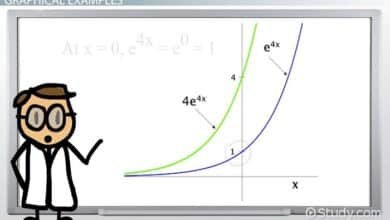Trad Con: A Comprehensive Exploration of Traditional Conservatism

Introduction
The term “Trad Con,” short for Traditional Conservative, represents a set of beliefs that prioritize traditional values, cultural norms, and social stability. In this comprehensive guide, we will explore the Trad Con movement, its core principles, its impact on society, and the various criticisms it faces. By the end of this article, you will have a nuanced understanding of what it means to be a Trad Con.
What is Trad Con?
Trad Con, or Traditional Conservatism, is a political and social philosophy that emphasizes the importance of preserving traditional institutions, values, and customs. Trad Cons believe that these elements are crucial for maintaining social order and stability. The Trad Con ideology often includes a focus on family values, religious faith, and a cautious approach to social and political change.
The Historical Roots of Trad Con
The roots of Trad Con can be traced back to early conservative thinkers like Edmund Burke and Russell Kirk. These philosophers advocated for a society built on established traditions and were skeptical of rapid change and revolutionary ideas. Understanding the historical context of Trad Con helps us appreciate its development and relevance in contemporary society.
Core Beliefs of Trad Con
At the heart of Trad Con ideology are several core beliefs. These include the importance of family, religion, and community. Trad Cons advocate for policies that support these institutions and are often opposed to progressive social changes that they believe undermine traditional values. The emphasis on personal responsibility and moral integrity is also central to the Trad Con worldview.
Trad Con and Family Values
Family values are a cornerstone of the Trad Con movement. Trad Cons believe that the family unit is the foundation of society and that strong, stable families lead to a healthy and prosperous community. This belief translates into support for policies that encourage marriage, parenting, and the traditional roles of men and women within the family structure.
The Role of Religion in Trad Con
Religion plays a significant role in Trad Con ideology. Many Trad Cons are guided by religious principles and believe that faith should influence public policy. This perspective often leads to support for religious freedom and opposition to secularization and moral relativism. Trad Cons argue that a society rooted in religious values is more likely to uphold moral standards and social cohesion.
Trad Con Views on Education
Education is another area where Trad Cons hold strong views. They advocate for an education system that emphasizes traditional academic subjects, moral education, and the teaching of Western cultural heritage. Trad Cons often criticize modern educational practices that they perceive as overly progressive or relativistic, arguing that these approaches undermine academic rigor and cultural continuity.
The Political Impact of Trad Con
The Trad Con movement has a significant impact on politics, particularly within conservative parties and movements. Trad Cons often influence policy debates on issues such as family law, education, and religious freedom. Understanding the political influence of Trad Con helps us see how traditional values continue to shape contemporary policy discussions.
Trad Con in Popular Culture
Trad Con ideas are also reflected in popular culture. Films, literature, and media that emphasize traditional values, family, and faith often resonate with Trad Con audiences. Analyzing these cultural expressions provides insight into how Trad Con values are communicated and reinforced in society.
Criticisms of Trad Con
Like any ideology, Trad Con faces its share of criticisms. Critics argue that Trad Con can be overly nostalgic, resistant to necessary social progress, and exclusionary. They contend that an emphasis on traditional values can sometimes ignore or marginalize diverse perspectives and experiences. Exploring these criticisms is essential for a balanced understanding of Trad Con.
The Future of Trad Con
The future of Trad Con depends on how it adapts to changing social and political landscapes. As societies evolve, Trad Cons will need to address new challenges and opportunities. The movement’s ability to remain relevant while staying true to its core principles will determine its future impact.
Trad Con and Modern Technology
In the age of digitalization, Trad Con values face new challenges and opportunities. The rise of social media and online communities has allowed Trad Con ideas to spread more widely, but it has also brought about new debates on issues like privacy, the influence of technology on family life, and the role of traditional values in a digital world. Understanding the interaction between Trad Con and modern technology provides a contemporary perspective on the movement.
Trad Con and Economic Policy
Economic policy is another crucial area where Trad Con values come into play. Trad Cons typically advocate for free-market principles, personal responsibility, and limited government intervention. They believe that economic freedom and traditional values go hand in hand, fostering a society where individuals can thrive. Exploring Trad Con views on economic policy highlights the movement’s broader vision for society.
Conclusion
The Trad Con movement, with its emphasis on traditional values, family, and religion, offers a distinct perspective on how society should be structured. While it has its strengths and appeal, particularly in promoting social stability and moral integrity, it also faces significant criticisms and challenges in adapting to modern realities. Understanding Trad Con helps us appreciate the diversity of thought within conservative ideologies and the ongoing debates about the best path forward for society.
FAQs
1. What does Trad Con stand for?
Trad Con stands for Traditional Conservative, a philosophy emphasizing the preservation of traditional values, family, and religion.
2. How does Trad Con view social change?
Trad Cons are generally cautious about social change, advocating for a gradual approach that respects established traditions and values.
3. What role does religion play in Trad Con ideology?
Religion is central to Trad Con ideology, influencing their views on public policy and moral standards, and promoting religious freedom.
4. How do Trad Cons view modern education?
Trad Cons advocate for an education system that emphasizes traditional academic subjects, moral education, and Western cultural heritage.
5. What are some criticisms of Trad Con?
Critics argue that Trad Con can be overly nostalgic, resistant to necessary social progress, and exclusionary, sometimes ignoring diverse perspectives and experiences.





